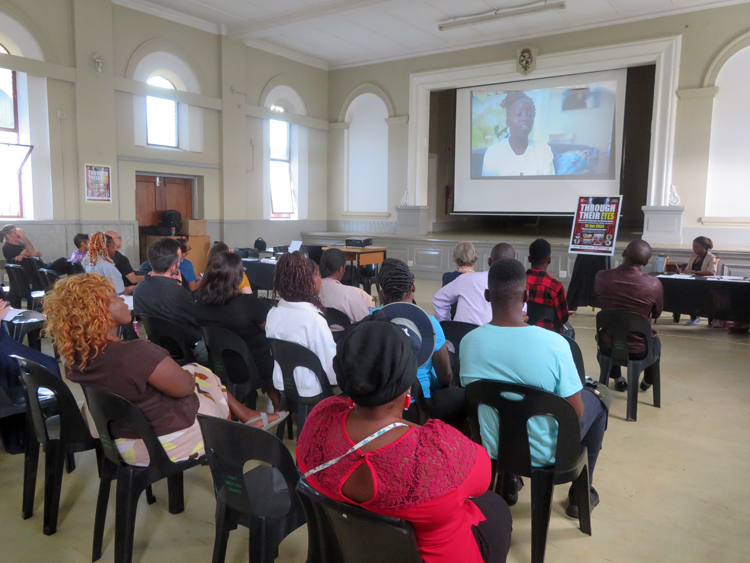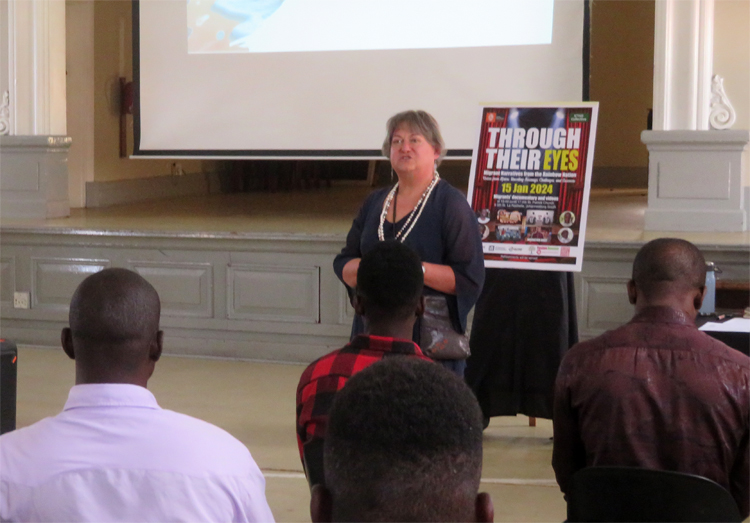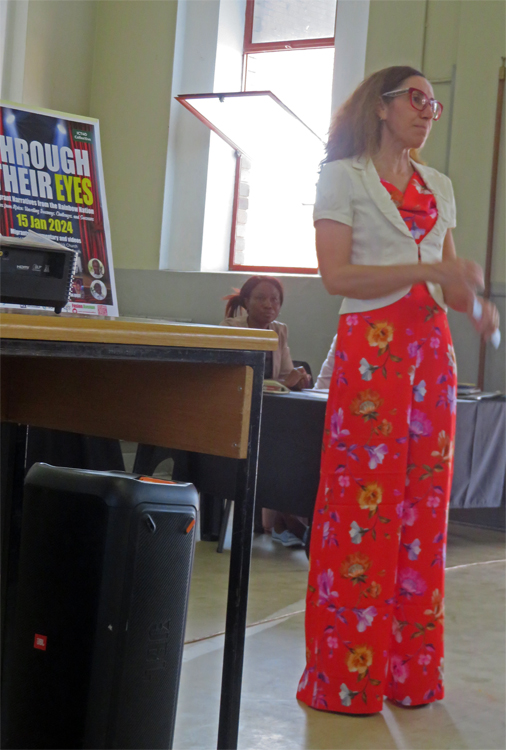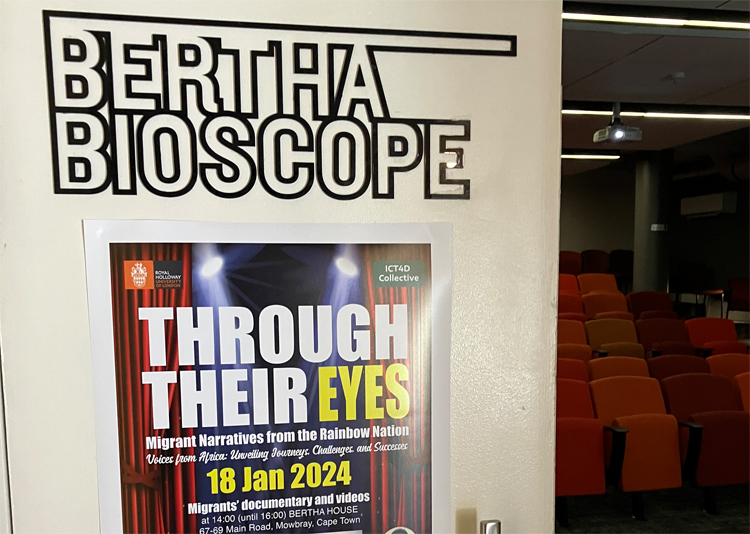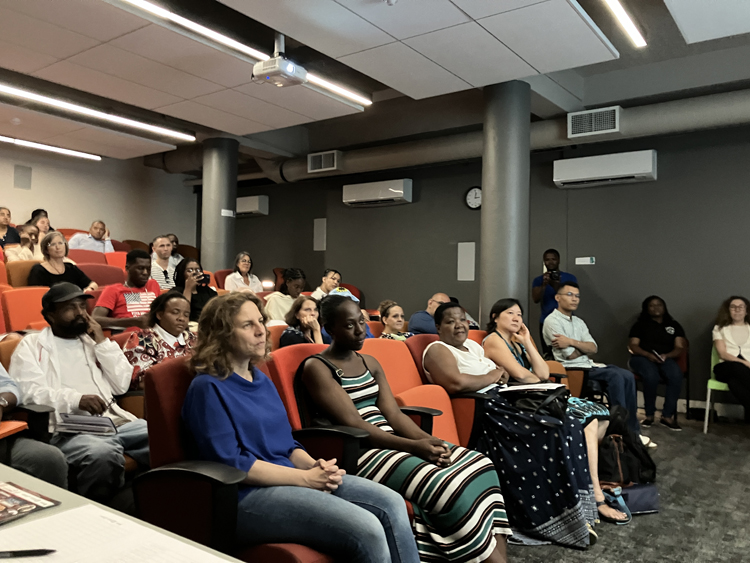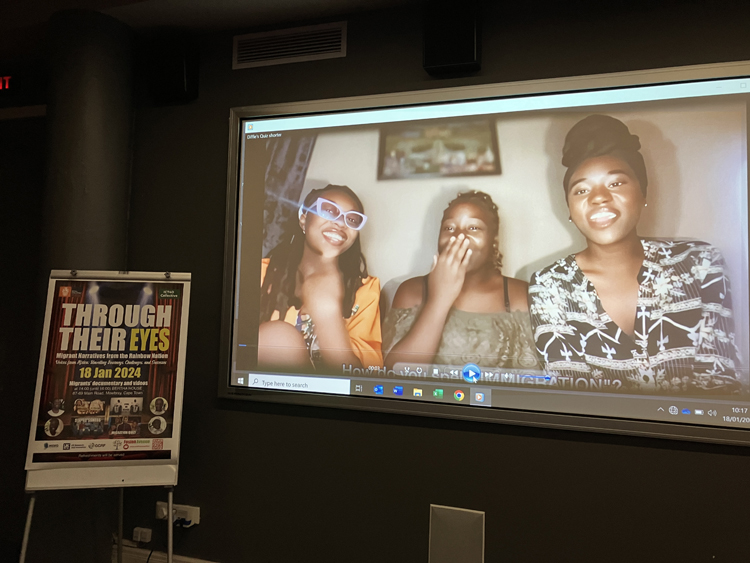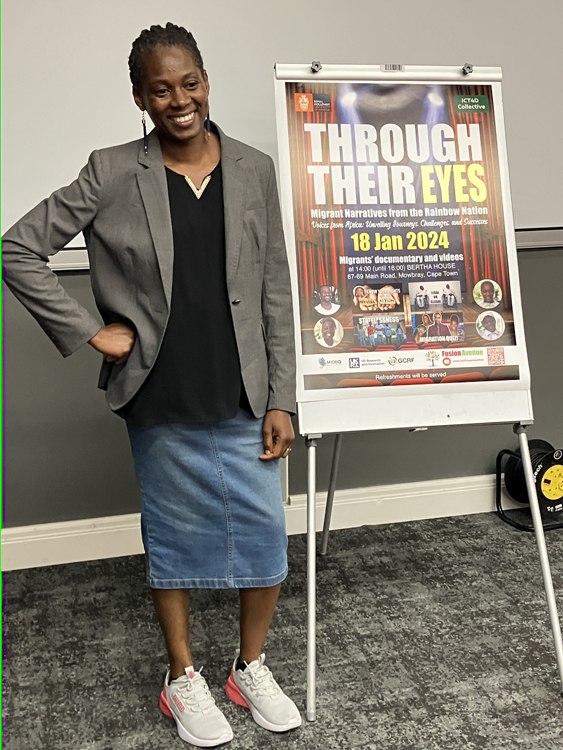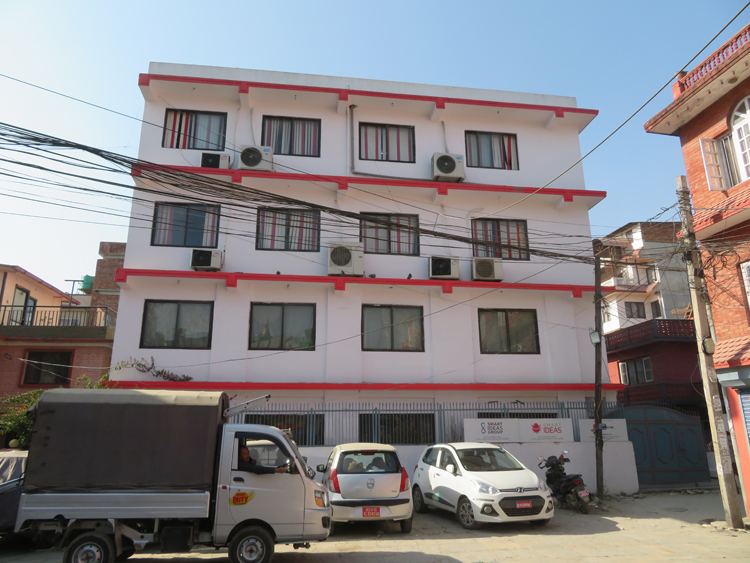We were delighted to convene public launches on 15th January in Johannesburg and on 18th January in Cape Town for the interventions on which we have worked with migrants and migrant organisations in South Africa. The same format was followed in each location and included four main elements:
- Premiere of a documentary film about the lives of the migrants with whom we have been working, entitled Through Their Eyes and produced by Simone Zanetti and Maria Rosa Lorini;
- Presentation of videos made by the migrants following training by our work package, and introduction to their YouTube channel Fusion Avenue which features all the videos that they have made;
- Information about the training they have been doing for others on the safe, wise and secure use of digital tech, following the training that they have received from our work package; and
- Refreshments and networking.

These interventions were conceived and facilitated by the Digital Technologies and Migration work package (WP9) of the MIDEQ Hub funded by the UKRI Global Challenges Research Fund (GCRF). WP9 is led by Professor G. “Hari” Harindranath and Professor Tim Unwin CMG, with the support of Dr. Maria Rosa Lorini (who led the work in South Africa), based at the ICT4D Collective (Royal Holloway, University of London, UK). The resources were created collaboratively with migrants and organisations in both the Johannesburg and Cape Town regions, including the Scalabrini Centres in Cape Town and Johannesburg, the University of Cape Town, UNISA’s Information Systems Department, Stoneintheshoe, Rainbow Media, and SIHMA. Other organisations involved in the initiative have included Adonis Musati, Cape Town TV, Ubunti-Bethu, and JL Zwane
Johannesburg launch, 15th January
The Johannesburg launch was held at St Patrick’s Catholic Curch in La Rochelle (press release), and attracted people from the local community, migrants, universities and international organisations (click on arrows to go through the slide deck).
Cape Town launch, 18th January
The Cape Town launch was held at Bertha House, Mowbray (press release), and likewise attracted people from the local community, migrants, universities and international organisations (click on arrows to go through the slide deck).
Resources
For further information:
- The ICT4D Collective
- The MIDEQ Hub
- Initial migrant videos from South Africa
- Advanced migrant videos from South Africa
- Migrant perspectives on video training in South Africa
Our documentary film
Click on the image below to watch a small sized (low resolution) version of Through Their Eyes (full high resolution version to follow)


